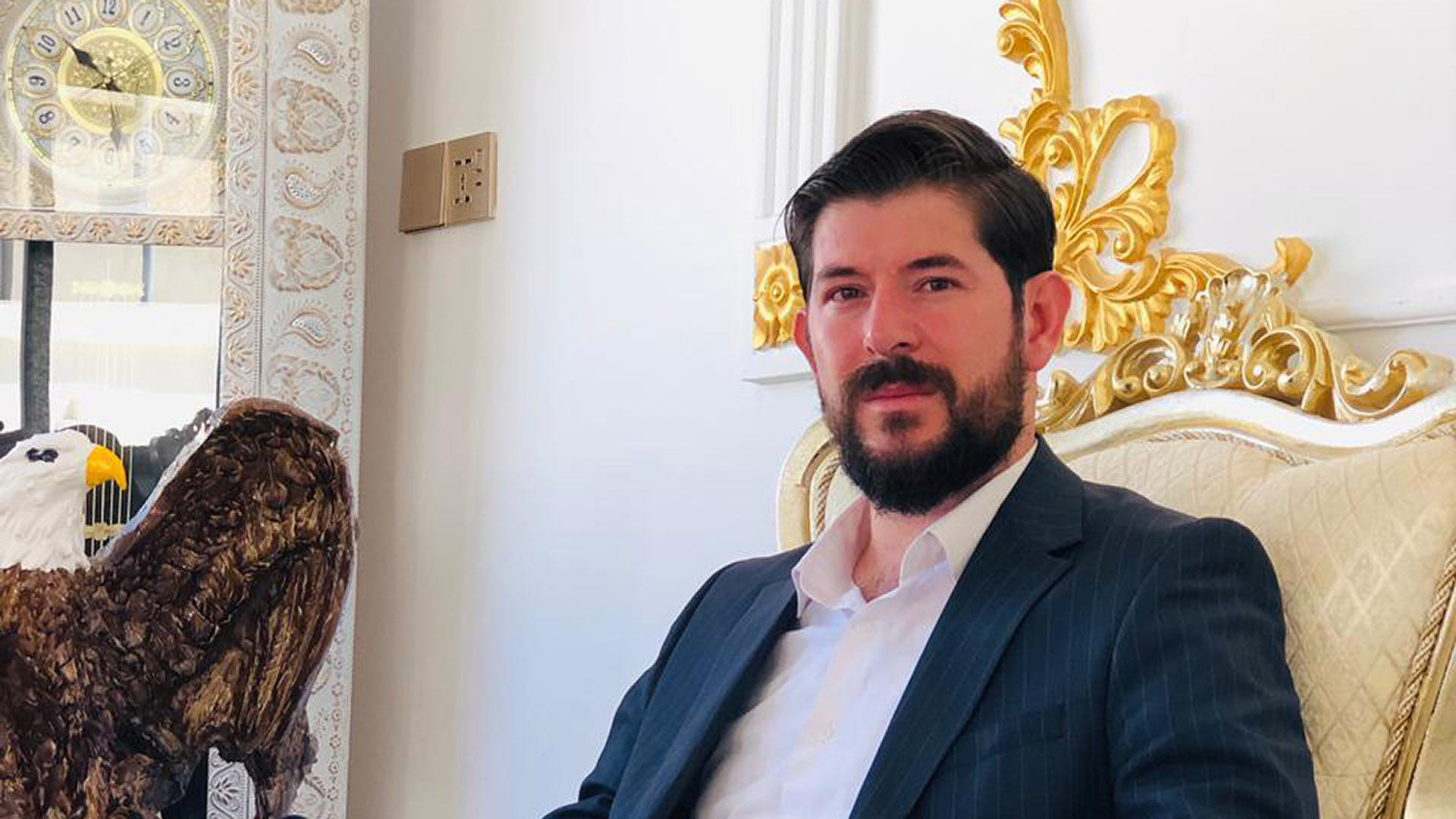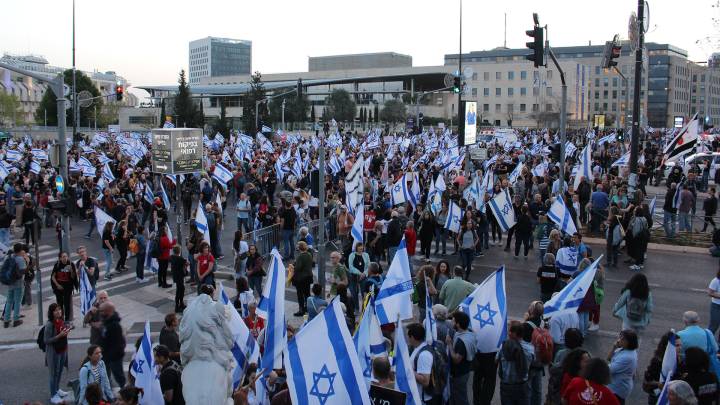Yazidi community leader Harman Mirza Saeed Bek on the quest for Yazidi political representation in Iraq – and the fears unleashed by the Taliban takeover in Afghanistan.
Iraqis voted on October 10 to elect a new parliament – the fifth elections since the fall of the Ba’ath regime of Saddam Hussein. The Iraqi parliament has 329 seats, nine of them are reserved for minorities. Yazidis, a religious and ethnic minority persecuted for centuries, have been reserved one seat as part of the quota system.
zenith: Yazidis are granted one seat in the Iraqi parliament, do you feel appropriately represented?
Harman Mirza Saeed Bek: This is an injustice against Yazidis. There are approximately 900,000 Yazidis in Iraq, and nearly half a million live in Sinjar. There are 300,000 Yazidis entitled to vote. According to this population estimate, we should have five or six seats in the Iraqi parliament. This is what we were promised in 2006, but it never materialized. Legislators were drafting laws granting the Yazidis five seats in parliament, but this draft was not approved by the majority vote.
Why was that?
Because we simply do not have a political force in parliament. As a matter of fact, the Yazidi population is larger than some other minorities. Yet, for example, Christians have five seats in the parliament. We are politically marginalized and there is a failure to grant us rights equal to our demographic importance. We do not find support. While – for example – the Turkmens enjoy the support and protection of Turkey, and Christians have the support of Western countries, we stand alone.
What are you doing to improve this situation?
We are trying to make our voice heard in the Iraqi parliament, as well as around the world. We want everyone to know about our suffering and persecution against us. We are trying to communicate with everyone who cares about us, nationally and internationally, and we appeal to the great powers to support us. On the national level, there are discussions with the Iraqi government to demand our rights through dialogue and discussion, in a peaceful manner, in the hope that our voice and our demands will be heard.
After the US withdrawal from Afghanistan and the Taliban’s takeover, many minorities, harbor fears of a similar scenario.
If a scenario like that of Afghanistan happens in Iraq, there will be horrific massacres. Indeed, Afghan society is fairly homogeneous – predominantly Muslim with a Sunni majority. However, the situation in Iraq is very different. There are different ethnicities, religions, sects, and religious minorities. All these factors mean that a similar scenario in Iraq would be a real disaster. In the event of a US withdrawal, for example, we expect a more terrifying scenario than what we experienced under the IS. There will be wars of extermination whose results cannot even be imagined. We have real concerns that something like this could happen in Iraq. We are neither a political nor a military force and we do not have a strong economy. We will become victims, many Yazidis will flee from Iraq to Europe and the rest will be killed.
‘Yazidis are still enrolling in the security forces to protect their regions’
Many Yazidis advocate for international protection through UN Peacekeeping Forces.
We really need Peacekeeping Forces in our areas. We have suffered greatly at the hands of the IS, and we need to feel safe and secure in our homeland. We hope that the international community will provide protection, in the hope that it will restore this sense of security that we have been lacking for a long time.
In the absence of such a force, how do Yazidis protect themselves in their areas?
Every Yazidi household has a martyr: either a member of the police forces, the army, or the Peshmerga; young men in their twenties that were killed by the IS terrorist organization. Yet, and despite this huge loss, Yazidis are still enrolling in the security forces to protect their regions, their families, and their properties. Truth be said, the Kurdistan Regional Government (KRG) was very cooperative with us in this matter.
How does the experience of persecution affect the Yazidi faith?
Throughout their history, Yazidis have faced brutal persecutions and have been the victims of repeated massacres. For their beliefs, they have been the target of hatred for centuries. They have endured systematic violence and genocide campaigns, which continued during the Islamic conquests and after. The memory of persecution and the injustice experienced is a reason for their isolation, creating eventually ambiguity surrounding their beliefs. But nowadays, in the times of internet and social media, the situation has changed: Yazidism has become better known and Yazidis are more open to the world. There is also a greater interest in their traditions and their philosophy. Many humanitarian organizations and Western countries are interested in Yazidis to shed light on their suffering, pain, and persecution.
‘We Yazidis are, without a doubt, Kurds’
Have Yazidis attempted to educate about their faith in order to dispel prejudices?
Of course, there are efforts by Yazidis to explain their beliefs to the rest of the world. However, with the invasion of Iraq by the IS and the genocide committed by IS militants against Yazidis, the world turned its eyes on us and saw the injustice Yazidis face and the misery they live in. The media reported extensively about us to shed light on our faith, traditions, and suffering.
There is a disagreement among Yazidis on whether they are ethnically Kurdish or a distinct ethno-religious group. How does this disagreement affect the cohesion of the sect?
We Yazidis are, without a doubt, Kurds. But in my opinion, there are two reasons for this disagreement: the first, which is also the main reason, is the oppression and injustice felt due to repeated attacks on Yazidis, particularly the 2014 IS massacre. Many Yazidis keep a deep mistrust because the Kurdish Peshmerga forces, who had been protecting the area back then, withdrew, leaving them defenseless. The second reason is political. Some parties, for their own purposes, say that Yazidis are not Kurds, but rather a distinct ethnoreligious community. On other occasions they define us as Kurds – and this is very confusing. However, we are Kurds and so are our ancestors. We are ethnically Kurdish, and it is a fixed part of our identity.
In how far has the demography of Yazidi areas in Iraq changed in the course of the last decades?
There has been considerable demographic change in Yazidi areas. In the 1970s, the Ba’ath regime launched Arabization campaigns against the Kurds and repeated efforts were made to arabize Yazidi-inhabited areas. More recently, the IS advance into Sinjar in August 2014 led to the displacement of hundreds of thousands of Yazidis. Even now, there are thousands still living in refugee camps. Many others sought asylum in Europe, feeling no longer safe in Iraq. They sold their properties and lands to Arabs and left. Today, you find many Arabs and Muslims residing in areas that were previously inhabited only by Yazidis.
Harman Mirza Saeed Bek, was born in 1988 and is a member of a leading family of the Yazidi community. Yazidis are a minority religious and ethnic group, indigenous to the Kurdish regions. The majority of Yazidis live in Iraq. The second largest Yazidi community in the world lives in Germany. For centuries, the Yazidis have faced persecution for their beliefs and most recently the IS massacre of 2014. Harman Mirza Saeed Bek is the first representative of Hazim Tahsin Bek, who was elected Prince of the Yazidis in 2019.




